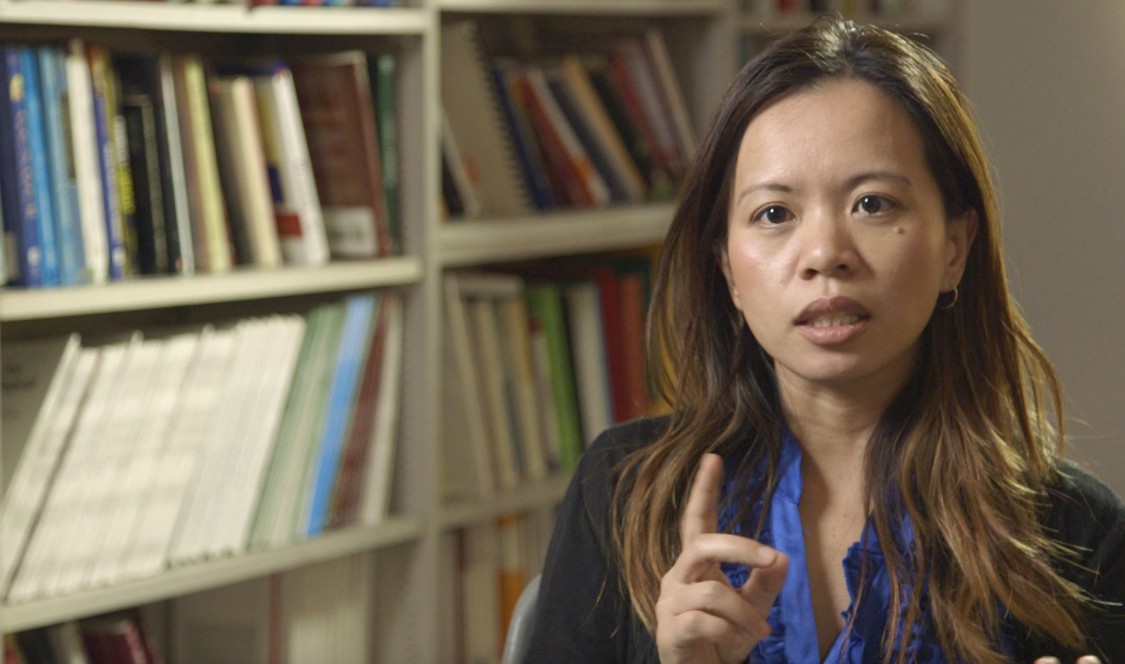How does loneliness affect our immune system? How does our personality influence the extent to which we engage in preventative health behaviors? With much of the world in the midst of a pandemic, questions like these have become urgent. Associate Professor Stacey N. Doan, a health psychologist at Claremont McKenna College is looking for answers — and she is trying to understand what we may learn from the existing global health crisis for the next one.
“The pandemic is essentially a natural experiment,” Doan said, adding that a number of factors make it unique; it is ongoing with no clear end in sight, and it has wide-ranging effects, disrupting work, relationships and everyday routines.
“We can’t induce a chronic stressor like this in a lab,” she said.
In an unusual twist of events, researchers at CMC’s Berger Institute, which Doan directs, were in the midst of collecting data for a study designed to understand how psychological and social factors become “biologically embedded,” that is get underneath the skin to influence health. Then the pandemic hit the United States. “We essentially have baseline data on our participants, which allows us to investigate prospectively the extent to which psychological health may change as a function of the pandemic, but also to make predictions about who will most likely be affected,” she said.
Doan and her team are now designing a study that will use the existing baseline data and combine them with new information collected in the next few weeks, i.e. at the peak of the pandemic, and later, when mitigation efforts have been effective. (Given the funding, the project could become a longitudinal study.) By comparing the different data sets, the researchers hope to learn how pre-virus behaviors might predict the response of individuals to a chronic stressor such as a pandemic. “We will also collect data on risk perception and health behaviors; this data could potentially inform public policy for how best to encourage individuals to follow recommended guidelines.”
With the number of pandemics bound to increase and our understanding of how people cope with a crisis of this magnitude still limited, Doan said that the study at CMC will deliver “some of the first data to help us make concrete recommendations in the future.” Specifically, these could include suggestions for how people can maintain their mental health while they are socially distancing.
In her previous work, Doan has repeatedly shown how the stress of poverty disrupts higher level cognitive processes including a person’s ability for self-control, which, in turn, might be a key factor for why people in socioeconomically disadvantaged neighborhoods tend to smoke more, don’t eat right and don’t exercise. Solution-oriented, she has recently also studied which interventions might improve a person’s self-control and help break the cycle between poverty and poor health.
“It has always been important to me, to bring my research directly back to people who are most affected by it,” she said.
Doan attributes her deep interest in health psychology to a bicultural, Asian-American background and her education at a liberal arts college similar to CMC, Carleton College, that prioritized interdisciplinary thinking. The daughter of refugees from Vietnam, she grew up in striding two different cultures and two different belief systems.
“In school, I learned about viruses and germs, and at home, the emphasis was on energy and balance. Health psychology is a wonderful way to integrate and incorporate multiple perspectives and to really think of the individual as a whole person, living in a specific place and time,” she said.
But another factor also influenced her career choice. Her upbringing in a neighborhood with high rates of addiction, gun violence and homicide made Doan aware that the stress related to poverty and maladaptive health behaviors go hand in hand.
“How do you go for a run if you might get shot going out on the street?” she said.
Asked how she stays sane in the time of coronavirus, Doan said she tries to accept the situation and be in the present moment.
“I am a workaholic, and this pandemic has very much forced me to slow down, at least workwise. While acknowledging my privilege, I am trying to practice what I often preach, savor the little things, take time to breathe, and most importantly connect with those you care about — via Zoom, of course.”
—Christina Schweighofer

